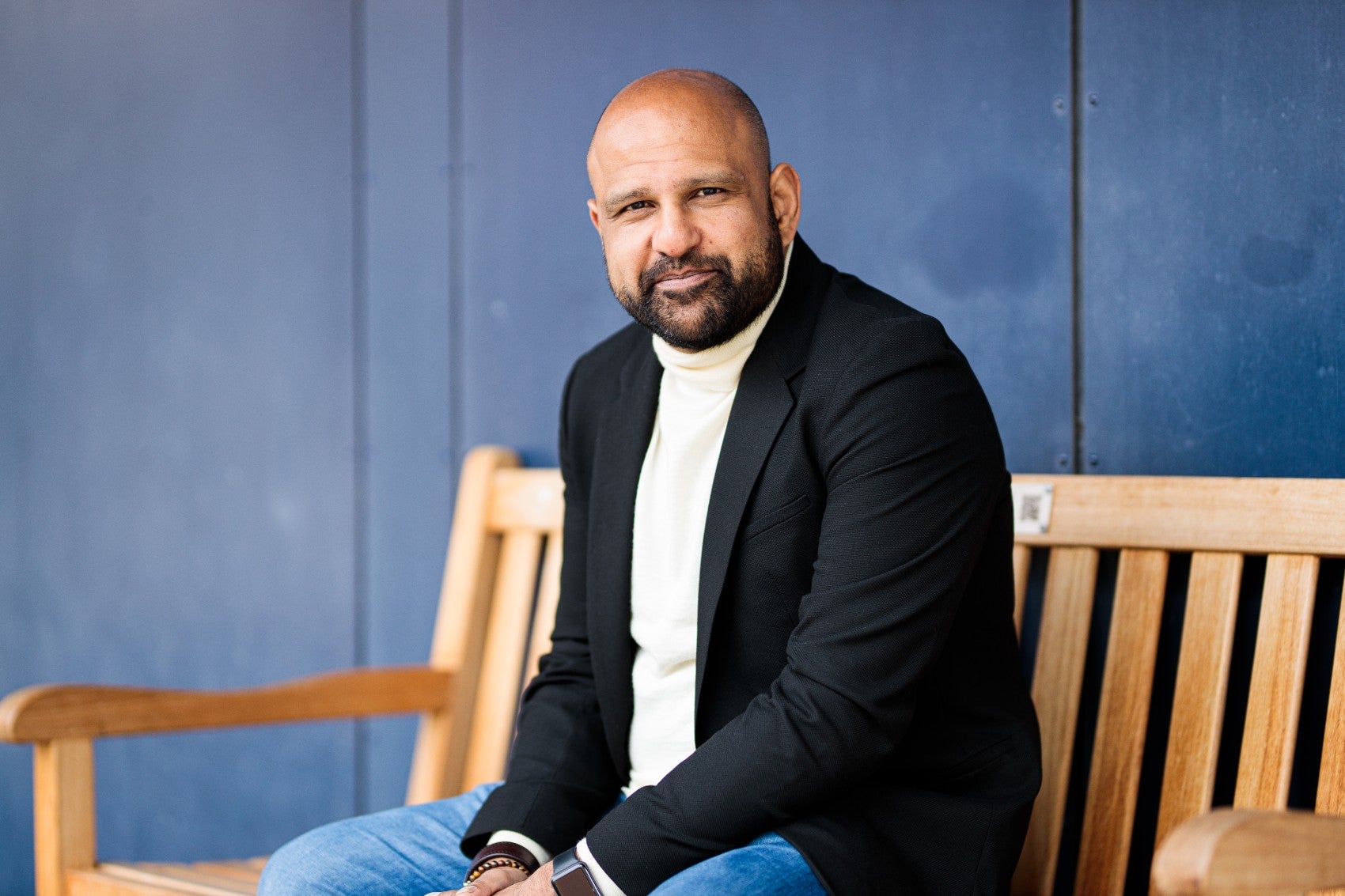There is rampant discrimination in sports, yet we believe it to be justified, argues Marjan Olfers, professor of Sports and Law at VU Amsterdam.
After an evening lecture, she sat down for a chat with VU Magazine about racism in football, inappropriate behaviour and sexual misconduct in sports, and personal threats.
You are a professor of Sport and Law. Why is the position such a good fit for you?
„It’s an exciting field that brings you close to the action: there’s match fixing, unacceptable behaviour, doping, and more. Just take Armstrong and privacy rights, for example. Is it lawful to take urine samples at random? On top of that, I have a soft spot for passionate people such as athletes and artists. I am fascinated by their immense, unbridled, almost irrational pursuit of their passion."
What was today’s lecture about?
„We talked about the AZ fans who were recently arrested for racist chants. Until recently, it was very difficult to arrest people in stadiums because there was rarely enough evidence to prove that an individual had done something wrong. To find out who threw a banana at a Black goalkeeper, all you have to do is check the camera footage. But how do you prove who made a monkey sound? Or which member of a large group of people shouted homophobic slurs at the referee?"
„For a very long time, this kind of behaviour was tolerated, and even considered “part of football”. That, of course, is blatantly untrue: racist language doesn’t become any less harmful when uttered in the confines of a stadium. Society, spearheaded by a handful of mayors, now seems to be taking a hard-line approach and the call for tougher sanctions is becoming louder across the board. Instead of trying to control the problem, we are going to fight it with criminal law. You can have your opinions about this, but there is no denying that this is how we are currently trying to tackle the issue."
„When I asked him why he wasn’t incensed by all the despicable things shouted his way. His answer was heart-wrenching: he didn’t want to confirm the image of the aggressive, angry Black Man."
„There are currently pilots with AI technology underway that will make it possible to identify individual culprits, but if they claim to be lip-syncing or shouting a different, very similar word, we have no way of providing individual evidence that they are culpable, and therefore subject to punishment."
„When I was recently talking to a Black football player, I asked him why he wasn’t incensed by all the despicable things shouted his way. His answer was heart-wrenching: he didn’t want to confirm the image of the aggressive, angry Black Man."
The examples you have mentioned are very explicit. Are there more subtle undercurrents too?
„Absolutely. There’s what I call unconscious bias. There has been research into whether we attribute certain characteristics to Black players, for example, such as aggressive attitudes or even certain positions on the football pitch. I’m now researching dance and found a particularly poignant example in ballet. Did you know that pointe shoes in darker colours are a relatively recent development?"
Do you feel that larger societal issues have also made their way to sports?
„Yes, the issues are exactly the same. Sports reflect what is going on in society. Take the gender debate, for instance. Transgender athletes are a major issue in sports today, with people questioning whether trans women athletes should be allowed to take part in women’s sports. The problem is that you have to decide on a cut-off, which is both very painful and very complicated. Discrimination is rampant in sports: we still have men’s and women’s teams, for instance. This distinction is deemed justified because we value fair competition and although we could merge men’s and women’s sports, we would have to accept that athletic events like marathons would never be won by a woman, which is not what we want."
„Sports acts as a magnifying glass and as an arena in which hot-button issues are contested and magnified. Take Qatar, for instance, and whether we should or should not have sent a team to the World Cup. Planes fly to Qatar every day, earning airlines a pretty penny, and countless countries across the world have high-level trade relationships with Qatar. But when the country hosted the Football World Cup, it suddenly became a social issue."

How do people generally respond to your findings about racism or sexual harassment?
„The 'Johan Derksen' (controversial Dutch TV personality, ed.) of this world say that it’s the harsh reality of sports and that we’re not living in a fairy tale. They might come up with arguments like: 'They don’t know what they’re saying', 'It’s just a few bad apples', 'You shouldn’t take it too seriously’ or ‘You can’t have sports without emotion.' When push comes to shove, all they’re doing is justifying unacceptable behaviour."
„The 'Johan Derksen' of this world say that it’s the harsh reality of sports and that we’re not living in a fairy tale."
„I used to hope that only ignorant people downplayed racism and harassment, but that’s just not the case. They’re people just like you and me. They’re loving parents and they have jobs. The degree to which people can self-identify with a club still staggers me. The idea that 'we are one' can be so tribal and so sectarian. I just think: Come on, wake up!"
Does it ever get personal for you?
„It always does. And I’m convinced that the fact that I’m a woman is part of it. I’ve spoken up about inappropriate behaviour myriad times, including about the Johan Derksen candle incident. I commented that Derksen is making bullying a national pastime, while we’re hard at working rolling out anti-bullying programmes for our children. In the wake of my remarks, I was subjected to a barrage of threats."
„How could there be no homosexual footballers? Not only is it unlikely, it’s statistically impossible."
„Still, I refuse to stay silent, because I know what happens when you paint homosexuality in a bad light. There are lots of 15, 16, 17 and 18-year old boys playing football who are too terrified to come out, which is a crying shame. And there is evidence of this. How could there be no homosexual footballers? Not only is it unlikely, it’s statistically impossible."
As a student, could you ever have imagined that there was so much going on behind the scenes in sports?
„I never imagined that the immensity and intensity of polarisation and contradictions in sports would become so great and dominate the news cycle. I never thought that Qatar, Russia or sexual harassment in sports would receive the attention that they have. As a matter of fact, I did a study on gymnastics and saw Nadia Comăneci with my own eyes. At the time, it didn’t occur to me to wonder why she was so incredibly small. I never wondered whether she was okay, whether she was even eating, or whether I should have asked something. There’s an unconscious component to it all."
„I’m currently researching the world of dance and some of my findings have been terrifying. The same weight and appearance problems that have come to the fore in gymnastics are also a big part of ballet and ballroom dancing. I can’t say too much yet, but we’ll be publishing the results of our study on 22 May."
Want to know more? Join us at Déjà VU festival on June 15 to see Marjan Olfers take a deep dive into the topic during the ‘The Sporting Dilemma' talk show. The summer festival for the entire VU community is jam-packed with knowledge sessions and talk shows, but you’ll also have plenty of opportunities to dance among the students to performances by famous artists, browse the festival market and enjoy delicious snacks and drinks served by the best food trucks. Don’t miss out! Order your ticket now at https://vu.nl/en/about-vu/more-about/deja-vu-festival







